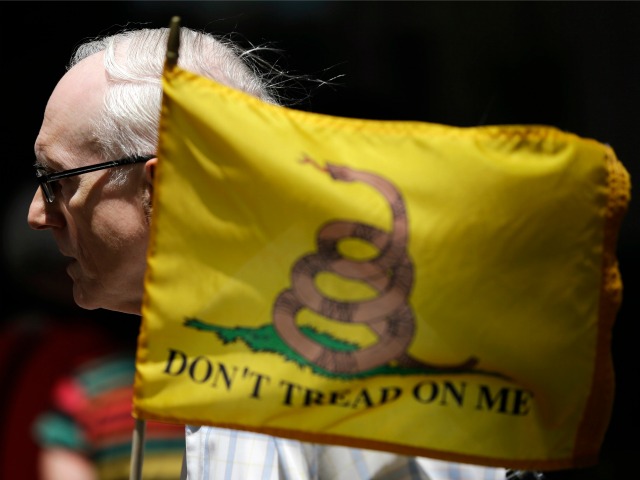Editors Note: Slate’s Betsy Woodruff drills down on the ongoing impact of the grassroots movement called the Tea Party.
At first glance, the 2014 midterms look like a catastrophe for the Tea Party. Sarah Palin’s candidates lost in state after state, conservatives like Louisiana’s Rob Maness who proudly embraced the Tea Party label got walloped, and favorites of the so-called RINO surrender caucus—including Thom Tillis and incumbent Sen. Lamar Alexander—sailed to wins in their primaries ahead of their victories last Tuesday.
But movement conservative and Tea Party Republicans see it differently. They argue that their strategy for this cycle worked out fairly well—at the very least, well enough for them to see no reason to shift strategy. Prominent conservative activists who backed upstart challengers like Maness and Chris McDaniel in Mississippi are eager to push back against the emerging narrative that GOP gains in the 2014 midterms were the result of establishment Republicans’ efforts to “kick out the crazies”—for lack of a better term. In retrospect, these activists feel little regret for how the 2014 midterms played out; if anything, they feel vindicated.
Conservatives’ biggest win came early in the cycle, in the Nebraska Republican primary between former Bush administration official Ben Sasse and former Nebraska treasurer Shane Osborn. The ideological differences between those two candidates were a tad inscrutable—the two weren’t identical, but they probably had more in common than any other top primary contenders. But that race quickly became a proxy battle between insurgent Tea Party grassroots activists (there’s not a simple term to use to describe anyone involved here, alas) and often-more-moderate Washington Republicans with comparatively strong ties to business interests and less interest in ideological purity.
Sasse won the backing of the former, while Osborne captured the support of the latter. The tension between those two factions is long simmering and messy. (Jonathan Strong explained it thoroughly for National Review last year.) The short version is that Sasse won support from some of the same groups boosting Senate Minority Leader Mitch McConnell’s primary challenger. And thus, McConnell looked to bring down the hammer on the upstart. Sens. John McCain and Lindsey Graham also stepped into the fray, supporting Osborne. Sasse, meanwhile, campaigned with Sen. Ted Cruz, Sen. Mike Lee, and Sarah Palin.
The Nebraska race became a McCain v. Palin faceoff of sorts—and Palin’s side won. Tea Party leaders point to that victory as a huge moment for them.
“People can’t ignore the undercurrent that was going on in that race,” said Drew Ryun, political director of the Madison Project, a conservative group that backed Sasse.
He added that Sasse’s race was the only primary that brought together all the deep-pocketed conservative outside groups hungering to back conservative candidates in red-state primaries: Club for Growth, FreedomWorks, the Senate Conservatives Fund, Tea Party Patriots, and Sarah Palin all rallied behind Sasse, and it worked.
Read the rest of the article here.

COMMENTS
Please let us know if you're having issues with commenting.